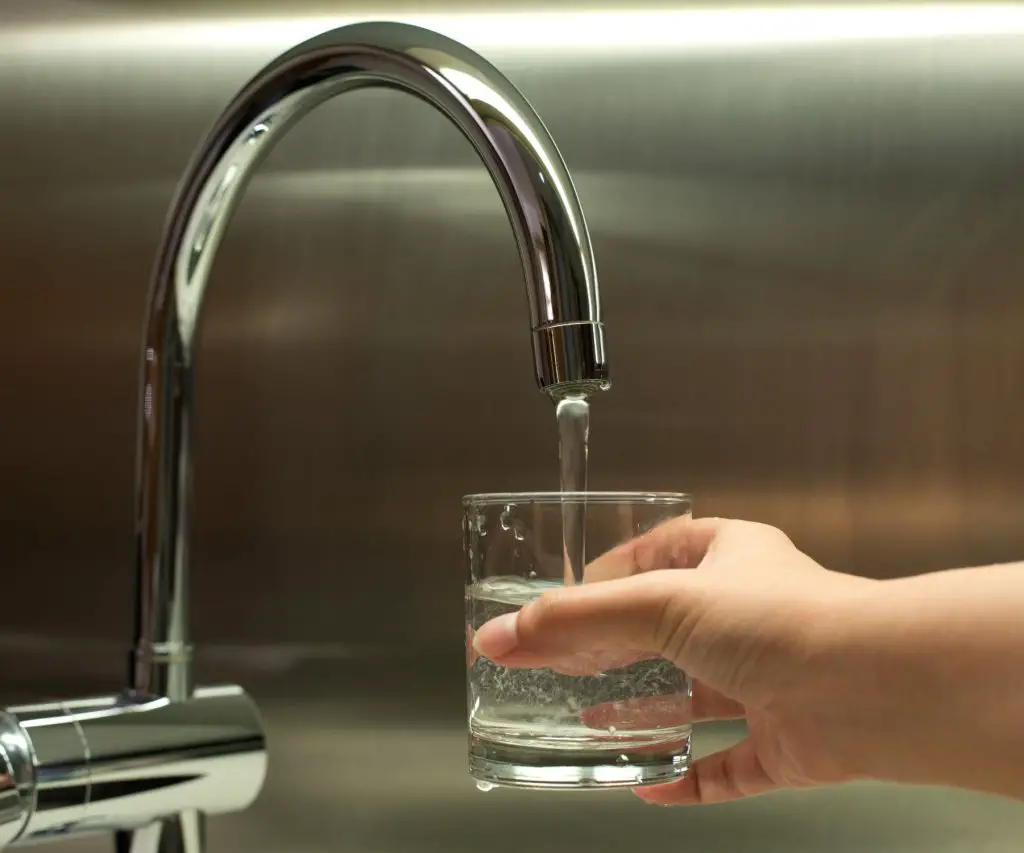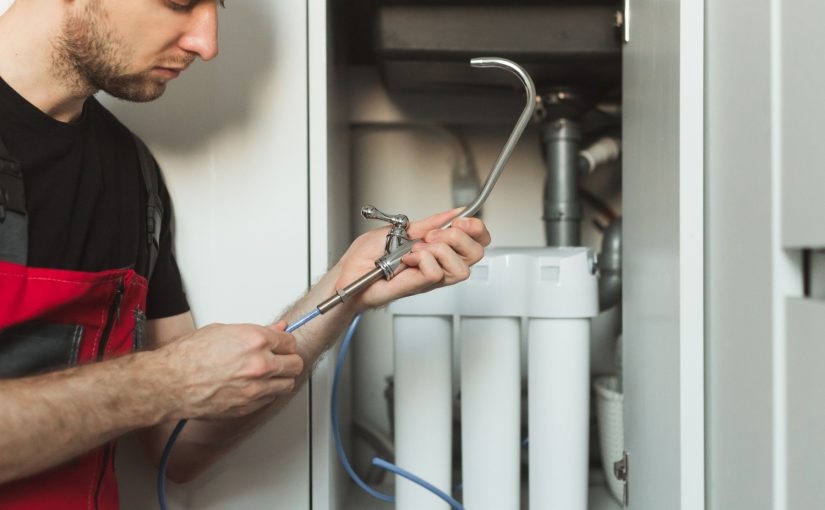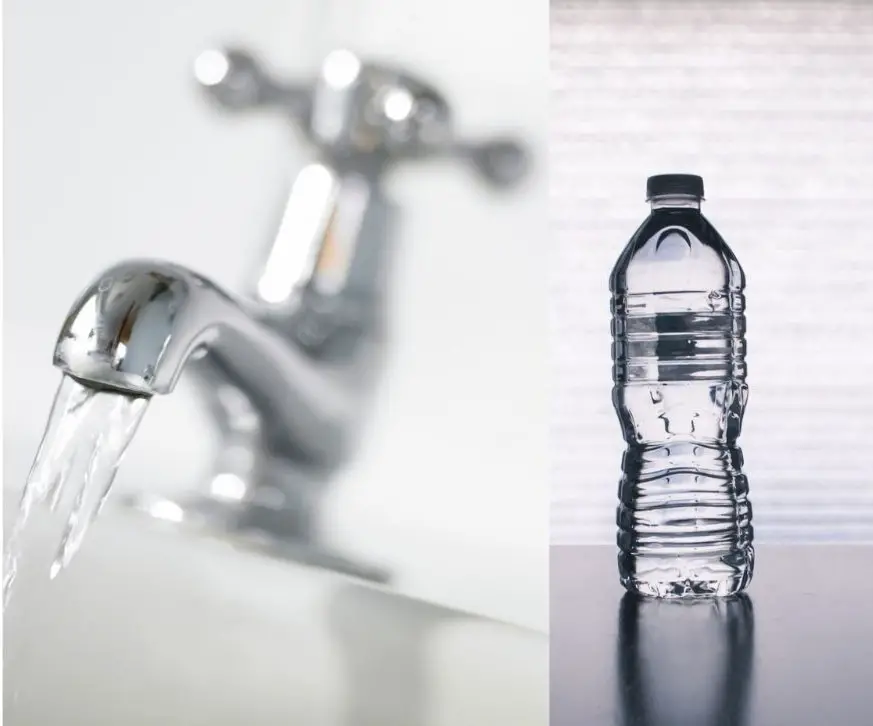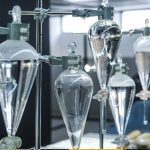Table of Contents
Can I Use Tap Water in a Humidifier if I Have a Water Softener?
Using tap water treated by a water softener in a humidifier is generally safe, but proper maintenance is required to limit mineral deposits and bacteria growth that can occur in the softened water. The sodium ions from the water softener replace calcium and magnesium ions, resulting in soft water without the minerals that cause hard water deposits. However, the sodium and any other remaining minerals can still leave deposits over time.
The EPA recommends changing the water daily and disinfecting the tank regularly to control bacteria and limit mineral deposits in humidifiers using softened water. With proper precautions, the benefits of softened water in humidifiers outweigh the small risks.
How Do Water Softeners Work?
Water softeners are devices that remove minerals like calcium and magnesium from hard water by using a process called ion exchange. Here’s how it works:
- Hard water flows into the softener tank and passes through resin beads that are charged with sodium ions.
- The calcium and magnesium ions in the hard water swap places with the sodium ions on the resin beads.
- This effectively replaces the hard water minerals with sodium ions.
- The resulting soft water then flows out of the softener system without the troublesome hard water minerals.
So in summary, water softeners transform hard water into soft water by removing the calcium and magnesium ions and replacing them with sodium ions instead.
| Hard Water | Soft Water |
|---|---|
| Contains calcium, magnesium ions | Contains sodium ions |
| Causes limescale buildup | No limescale buildup |
| Not recommended for humidifiers | Safe for use in humidifiers |
The resulting soft water has no minerals that can cause limescale or hard water buildup. This makes softened water safer for use in appliances like humidifiers.
Concerns With Using Softened Water in Humidifiers
While softened water is preferable to hard water for use in humidifiers, there are some potential downsides to be aware of:
Mineral Deposits
Softened water still contains sodium and any other minerals that were not removed during the ion exchange process. Over time, these minerals can leave white dust or salt deposits in the humidifier known as fallout.
Too much mineral fallout can:
- Clog up the humidifier’s internal components and filters.
- Reduce the efficiency and output of the humidifier.
- Appear as white dust circulating in the air.
While not as severe as limescale buildup from hard water, sodium deposits can still be a nuisance and should be minimized.
Bacteria Growth
The lack of calcium and magnesium minerals in softened water means there is less to inhibit the growth of microorganisms like bacteria and fungi.
Studies have shown that softened water is more likely to allow bacteria like Pseudomonas aeruginosa to rapidly multiply inside humidifiers compared to untreated hard water.
When atomized into the air, these bacteria can cause illness if inhaled by people with compromised immune systems or respiratory issues. This is especially concerning in medical environments.
So using softened water means being extra diligent about disinfecting the humidifier to control microorganism growth.
Mitigating Concerns with Proper Maintenance
While softened water comes with some drawbacks for humidifiers, proper maintenance can help mitigate any potential issues with mineral deposits and bacteria:
- Change the water daily – Don’t allow water to stagnate in the tank. Daily changes will limit mineral buildup.
- Disinfect tank regularly – Follow manufacturer instructions to disinfect the tank and kill any bacteria growth. Vinegar, bleach, and humidifier cleaning solutions can be used.
- Rinse thoroughly – Always rinse thoroughly after cleaning to prevent any cleaning agents from atomizing into the air during use.
- Follow filter changes – Replace filters as specified to remove sediments and bacteria from the water. This improves efficiency and output.
- Use distilled or filtered water – For severe mineral issues, use bottled distilled or filtered water instead of softened water from the tap.
Proper humidifier hygiene is essential even when using softened water to prevent buildup and microbes.
 Benefits of Using Softened Water in Humidifiers
Benefits of Using Softened Water in Humidifiers
While precautions need to be taken, there are several benefits that make softened water a better choice than hard water for household humidifiers:
- Prevents limescale buildup – The sodium ions in softened water will not leave mineral deposits on humidifier components like hard water does. This prevents costly limescale damage over time.
- Extends humidifier life – Without limescale buildup, the heaters, pads, and other parts will remain in working order longer before needing replacement.
- Easier cleaning – Mineral deposits rinse away much easier than limescale buildup which can require descaling. Less scrubbing saves time and frustration.
- Improves efficiency – Limited mineral buildup helps humidifiers run at peak efficiency for maximizing moisture output.
- Safer for environment – The lack of limescale buildup makes softened water less likely to breed hazardous mold and bacteria compared to distilled water.
While occasional white dust may form, the tradeoff of not dealing with hard water deposits makes softened water the best option for household humidifiers in most cases.
Choosing a Humidifier for Use With Softened Water
If you plan to use softened water, look for humidifier models designed to operate with tap water and that have features to help manage mineral deposits and microbes:
- Large 1.5 gallon tank holds enough water to limit refills.
- Includes three mist levels for customized humidity.
- Built-in timer automatically shuts off when empty to prevent mineral deposits from dried water.
- Uses ultrasonic technology for whisper quiet operation.
- Auto mode maintains ideal room humidity levels.
- Removable tank is easy to clean and disinfect as needed.
PureGuardian H5450BCA Ultrasonic Humidifier
- Silver Clean Protection inhibits up to 99.96% of bacteria growth.
- Warm and cool mist settings.
- Large 1.5 gallon tank capacity.
When shopping for a humidifier to use with softened water, look for large tanks, antimicrobial properties, and features that make cleaning and maintenance simple. This will help mitigate any risks of using softened water.
Daily and Weekly Maintenance With Softened Water
To keep your humidifier running in tip-top shape and avoid issues when using softened water, follow this maintenance routine:
Daily
- Empty tank and rinse with clean water
- Wipe down any exterior residue with soft cloth
- Refill with fresh softened water
Weekly
- Disinfect tank by filling halfway with 1:1 vinegar and water solution. Let soak 20 mins.
- Drain vinegar solution and rinse thoroughly.
- Wipe down exterior with cloth dampened with diluted vinegar solution.
- Rinse filter under tap water to remove sediment buildup.
- Refill with fresh softened water.
Monthly
- Inspect tank and components for any sediment or mineral buildup. Remove as needed.
- Replace filter per manufacturer instructions.
- Check for leaks, odd noises, or other signs of malfunction.
Regular cleaning and maintenance prevents major scale buildup when using softened water in a humidifier. Be diligent and don’t let water sit stagnant for over 24 hours at a time.
FAQs About Using Softened Water in Humidifiers
Is softened water safe for my humidifier?
Yes, softened water is generally safe for humidifiers and preferred over hard water since it won’t leave damaging limescale deposits. But take precautions for mineral deposits and bacteria growth in the softened water.
How often should I change the water?
Change the water daily to limit mineral deposits. Never leave water sitting for more than 24 hours.
What’s the white dust on my humidifier?
White dust or salt deposits on a humidifier using softened water is caused by sodium and other minerals. Clean frequently to remove them.
Can I use softened water in medical or commercial humidifiers?
Most medical facilities prefer distilled water in humidifiers to limit bacterial growth. Check manufacturer guidelines for water recommendations in medical or commercial environments.
The Bottom Line
While softened water comes with some potential downsides if maintenance is ignored, the benefits of using it in household humidifiers far outweigh any risks when proper care is taken. Limiting mineral deposits and disinfecting regularly allows you to capitalize on the benefits of scale-free softened water. Changing water daily and following manufacturer cleaning guidelines is key to success.
In summary:
- Softened water prevents limescale buildup that damages humidifiers over time.
- Take precautions to limit sodium deposits and bacteria growth in the softened water.
- Change water daily, disinfect and rinse tanks weekly, and replace filters monthly.
- With proper maintenance, softened water is safe and ideal for use in humidifiers.
So in answer to the question “Can I use tap water in a humidifier if I have a water softener?” – yes, with the proper care, softened tap water is recommended in humidifiers over hard water to prevent damaging limescale buildup and extend the appliance’s lifespan. Maintain cleaning routines to limit any downsides.











